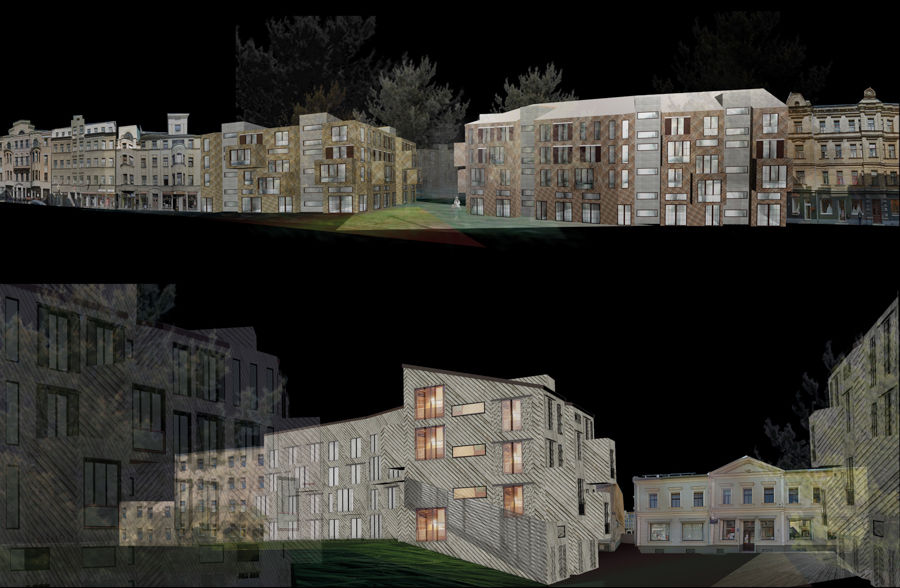KRISTĪNE OBODOVA / BA Thesis / 2015 / Typology of new city quarter experimental design in the Historic Centre of Riga, Latvia

Theoretical part: The contribution of the Historic Centre of Riga as a UNESCO World Heritage site to the development of the city / Supervisor: Dr. arh., asoc. prof. Jānis Lejnieks
Practical part: Typology of new city quarter experimental design in the Historic Centre of Riga, Latvia / Supervisor: Dr. arh., asoc. prof. Jānis Lejnieks
What does the average inhabitant of Riga and modern society receive from the multifaceted history of architecture? Why are we striving to preserve the historical image of the city, thus programming ourselves to serve the past instead of the future? This study can be defined as an attempt to rehabilitate areas in order to create the most effective method for reorganisation and reconstruction of Riga city neighbourhoods. For the study, a typical city block was chosen consisting of various building types and structures bordered by A. Čaka, Lāčplēša and Avotu Streets. The design concept is substantiated by the decrease in population in the city centre and the ever growing push-pull migration in Riga. By carefully analysing data on the neighbourhood and the criteria of the structure, it was concluded that up to 60% of the neighbourhood is on standby mode, which inspired the decision to create a high-quality living space serving the present instead of the past. Historical and urban values have been analysed and adapted according to the requirements of contemporary city life.